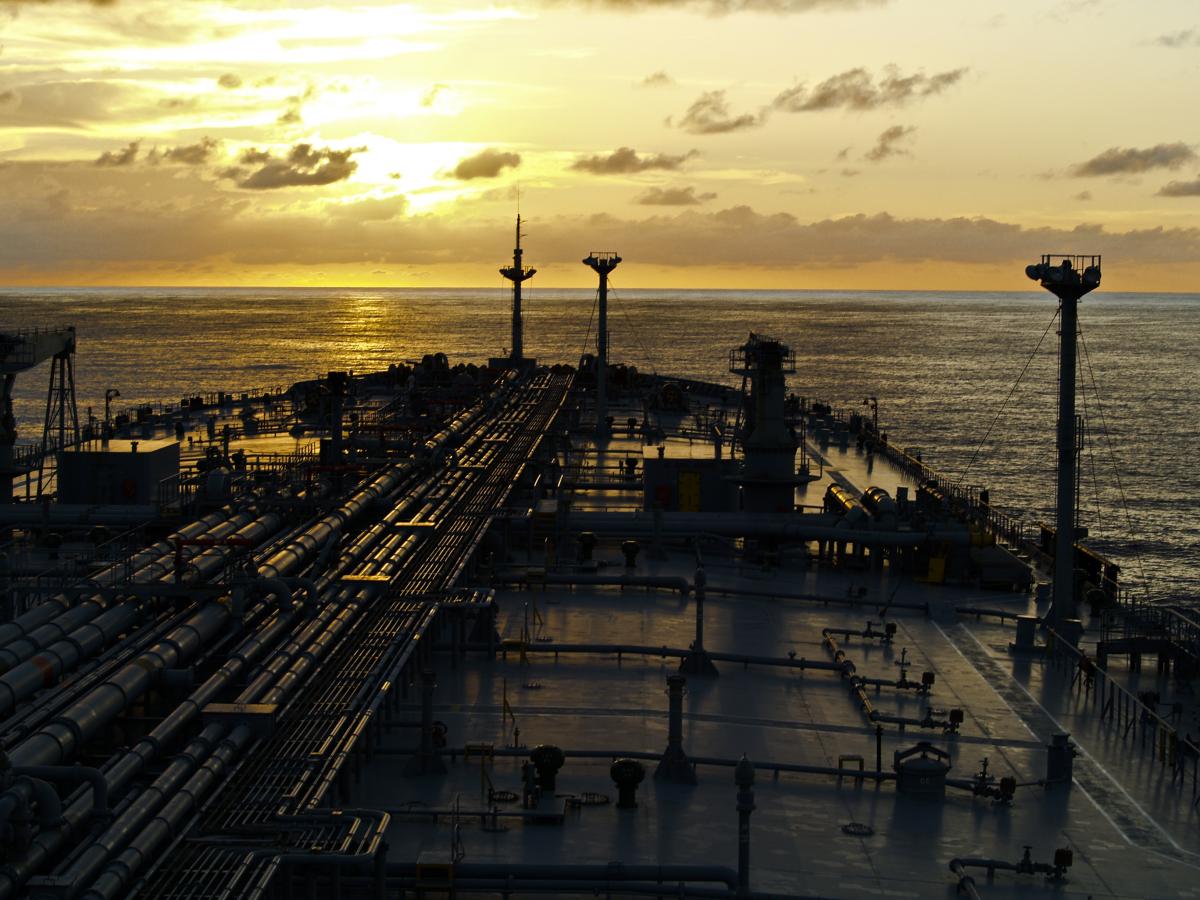The number of empty ships without a destination has increased significantly. More than $2 billion was spent on a “shadow fleet” to circumvent sanctions.

First, a small armada of oil tankers appeared to help Russia circumvent sanctions. And now hundreds of ships with fuel are trying to hide from prying eyes where they are going.
Bloomberg writes about it. According to analytics firm Kpler, 311 medium-range ships were recently spotted leaving without cargo or destination. There used to be about 14 such courts at any one time until this year. At the same time, only 33 empty vessels are heading to Russia, the lowest on record, down from 103 at the start of the year.
“The change is a sign that the vessels may be forming a ‘shadow fleet’ to covertly transport Russian fuel after the European Union imposed a ban less than two weeks ago,” Bloomberg writes.
More than 400,000 barrels of diesel per day were said to be heading from Russia to Europe, and traders and shippers are expected to find ways around the sanctions to keep most of the Russian fuel supplies on the world market.
“The increase in the number of empty, purposeless ships may also reflect an attempt by shipowners to predict the region of greatest demand when reshuffling markets for Russian products,” writes Bloomberg.
The cost of using fuel tankers has skyrocketed since the EU embargo was introduced as the vessels enter the “shadow” fleet and become unavailable – and uninsured by European maritime service providers – for regular trade routes such as transporting fuel from Europe to New York. . .
Bloomberg also writes that it is almost impossible to establish the exact number of vessels in the “shadow fleet”, since information about the owners is shrouded in secrecy. According to the estimates of the commodity company Trafigura, the total number of vessels may be 600, of which 400 are crude oil carriers. Unofficially, some shipowners call the figure slightly lower – from 10 to 12% of the world tanker fleet.
Russia’s “shadow” fleet is becoming a problem for everyone else
At the same time, the Russian fleet of “shadow” oil tankers becomes a problem for everyone else. Since sanctions on Russian fuel took effect in early February, ships carrying oil products across the Atlantic have recorded a fivefold increase in their daily output.
“Now that some freight rates are on the rise, executives are beginning to wonder if they’ll ever get back to serving everyone else,” the paper writes.
It is emphasized that regardless of whether these carriers permanently leave the international market or simply temporarily avoid it, the result may be higher shipping costs for Russian competitors.
“These vessels will be earmarked for shadow deals and de facto removed from the markets we find ourselves in. It’s actually still important in terms of tonne-miles and probably even more important given that it’s very inefficient.” , – said Gernot Ruppelt, commercial director of Ardmore Shipping, which operates a fleet of tankers for the transportation of fuel and chemicals.
Ton-miles are an indicator of the need for ships, multiplying the amount of cargo carried by ships by the distance covered by the delivery.
According to VesselsValue, a company that tracks the sale and purchase of ships, a little more than $850 million was spent last year on the expansion of the “shadow” fleet of fuel tankers. In addition, almost $1.4 billion was invested in vessels for the transportation of crude oil.
The London company Gibson Shipbrokers counted no less than 38 vessels for the transportation of fuel belonging to companies registered in Russia. But the actual figure is likely to be higher because it is difficult to track offshore companies with a large number of vessels. Also, after the Russian invasion of Ukraine, more than 100 fuel tankers were sold to countries that are not part of the G7 or the European Union.
Oil embargo against Russia
As reported, the EU oil embargo against Russia entered into force on December 5, 2022. They are banned from exporting Russian oil if its price is higher than the established “ceiling”. The EU Council set the maximum price for Russian oil at $60 per barrel. The price ceiling means that from December 5, the European Union, the United Kingdom, the United States, Canada, Japan and Australia will provide services related to the sea transportation of Russian oil only if it is purchased at or below a set ceiling price.
From February 5, 2023, an embargo on Russian petroleum products, such as diesel fuel and fuel oil, entered into force. The day before, the EU Council approved the price for them. Now oil products, the cost of which is lower than the cost of crude oil (according to the ceiling price of $60), can be sold at a price of no more than $45 per barrel. And for diesel fuel and other petroleum products, which are more expensive than oil, the price ceiling is set at $100 per barrel.





